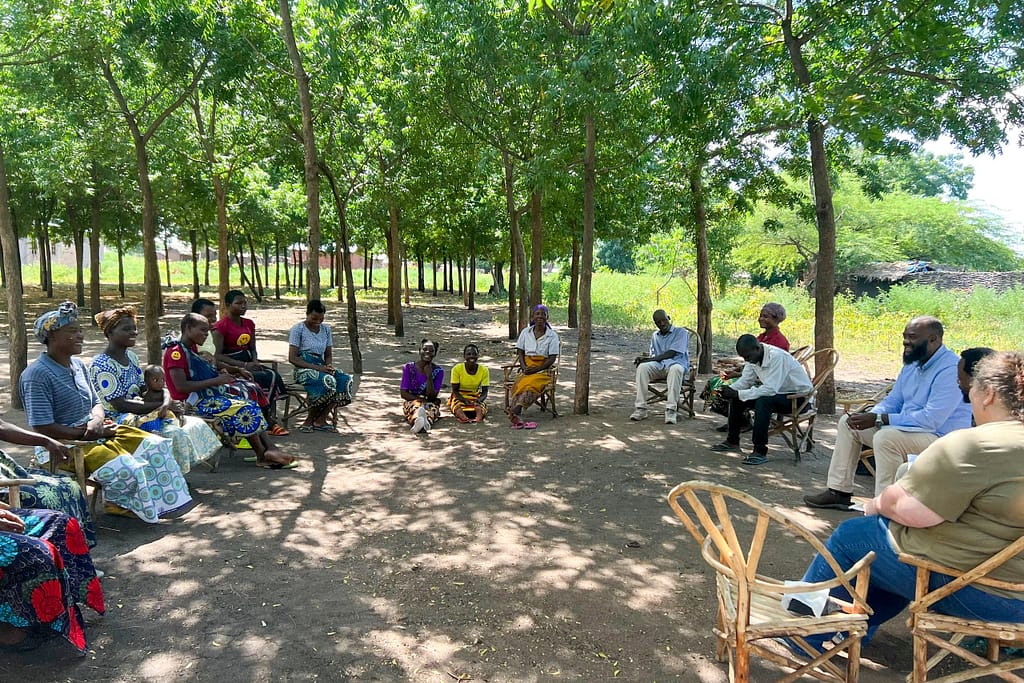
Groundwater is essential for many communities across Africa. It provides a reliable source of water for daily life and supports livelihoods. With Africa being home to some of the largest aquifers in the world, groundwater becomes the largest freshwater source in the continent. While its potential to enhance resilience against climate shocks, support sustainable livelihoods, and increase access to safe drinking water is immense, Africa’s groundwater resources face challenges like unsustainable extraction, pollution, and unclear governance. The Groundwater for aDvancing Resilience in Africa (G4DR) project is working to address these challenges and unlock the potential of groundwater to enhance water security and resilience across the continent. While some regions experience high rates of groundwater abstractions; groundwater use in sub-Saharan Africa remains relatively stable.
Funded by the Global Environment Fund (GEF) and implemented by the Food and Agriculture Organisation (FAO) in partnership with the International Water Management Institute (IWMI), the African Ministers’ Council on Water (AMCOW), the International Institute for Applied Systems Analysis (IIASA), and the Southern African Development Community Groundwater Management Institute (SADC-GMI), the G4DR project takes a multi-scale approach – working at the continental, regional, and basin levels.
The project focuses on five countries: Benin, Malawi, Mozambique, Togo, and Uganda. It aims to promote sustainable groundwater governance, monitoring, and development, build evidence and capacity, and engage youth in the conversations on groundwater management to secure Africa’s water future.

Case studies reveal groundwater challenges and inform G4DR interventions
The G4DR project is implementing targeted interventions in three case study areas, the Mono Basin (Benin, Togo), the Shire Basin (Malawi, Mozambique) and the Upper Nile Water Management Zone (Uganda). Each is facing unique groundwater challenges.
The Shire River-Aquifer System in Malawi and Mozambique is a transboundary system that is experiencing increasing water use, threatening to compromise ecosystems. The changing climate in the Shire System may result in aquifer depletion as water use is expected to increase in domestic and agricultural sectors, potentially compromising ecosystems. Key water quality challenges include high fluoride, iron, arsenic content and salinity. Collaboration on water, particularly groundwater, has not been extensive, and knowledge gaps constrain cooperation. In response, the G4DR project will support the development of a cooperative groundwater planning framework, including harmonised monitoring networks and data-sharing mechanisms, to promote sustainable management.
In the Upper Nile Water Management Zone in Uganda, groundwater is key to human consumption and agriculture production. The Upper Nile Water Management Zone is susceptible to climate variability and extreme weather events. There is potential to develop groundwater further, but areas are also experiencing over-exploitation, and groundwater availability will decline. Water quality issues, such as increased salinity and contamination, will likely emerge, and groundwater-dependent ecosystems are at risk. There is limited coverage of groundwater in basin planning in the Zone. Therefore, G4DR will focus on incorporating groundwater considerations into catchment planning and improving groundwater assessment tools and methods.
The Mono River Basin that spans across Benin and Togo faces challenges related to climate variability, water quality, and growing groundwater use. The Mono River Basin is characterised by a tropical climate with variable rainfall, resulting in frequent droughts and floods. There is growing groundwater use but also potential for additional development. Emerging water quality concerns may compromise ecosystem functions, and there is limited data and monitoring to support holistic management. The G4DR interventions in the Mono Basin will improve the management of the Basin, based on enhanced and integrated monitoring, explore the potential of Managed Aquifer Recharge (MAR) to mitigate floods and droughts, and identify and address wells at risk of water supply contamination due to floods.
The project is addressing the challenges identified by the case studies through a series of activities, with IWMI as the lead executing agency coordinating the overall project implementation. Following the inception workshop in Cotonou, Benin in January 2025 activities are being rolled out in the case study areas. Gender assessments are being conducted and the integration of youth into groundwater management is ensured throughout the project cycle.
At the Pan-African level, AMCOW is leading the development of a strategic program on groundwater in Africa, while IIASA is developing a groundwater opportunity and risk assessment report, and SADC-GMI is playing a key role in knowledge exchange and cross-pilot/case study learning, facilitating the Community of Practice between the countries.
The G4DR project proactively works toward ensuring water security and inclusive groundwater management in Africa. Through engaging with stakeholders, G4DR is helping to unlock the immense potential of groundwater for the benefit of all, including ecosystems across the continent.
















